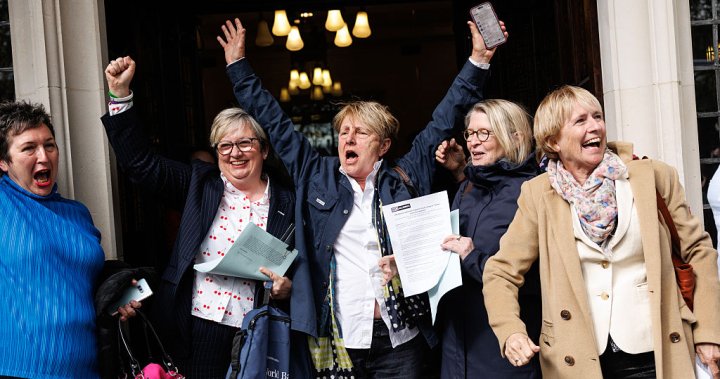
‘Woman’ legally defined as someone biologically female, rules U.K. Supreme Court
Global News
Five judges ruled that the U.K. Equality Act meant that trans women can be excluded from certain spaces, including changing rooms and swimming pools.
The U.K. Supreme Court ruled on Wednesday that a woman is someone who is born biologically female.
The outcome excludes transgender people from the legal definition, and comes after a lengthy legal squabble between For Women Scotland (FWS) and the Scottish government.
The ruling was based off a 2022 legal challenge brought by FWS against the 2018 Scottish Act of Parliament definition of the term “woman,” which included people with protected characteristics of gender reassignment, those living as a woman, and people proposing to undergo, who have undergone, or are undergoing gender reassignment, the U.K. Supreme Court website says.
Scottish civil courts found the definition to be unlawful as it dealt with matters that fall outside the legislative jurisdiction of the Scottish Parliament. It was updated in 2023.
However, FWS moved to overturn the new definition as it stated that a person with a Gender Recognition Certificate (GRC), recognizing that their gender is female, is considered a woman.
After a spout of contentious back and forth in Scottish courts, FWS appealed to the U.K.’s Supreme Court.
On Wednesday, five judges ruled that the U.K. Equality Act meant that trans women can be excluded from some groups and single-sex spaces, including changing rooms, homeless shelters, swimming areas, and medical or counselling services meant only for women.
The court reiterated, however, that the ruling did not strip trans people of their rights, and that they are still legally protected from discrimination in the U.K. Nonetheless, the ruling states that certain protections are reserved for biological women but not transgender women.

 Run 3 Space | Play Space Running Game
Run 3 Space | Play Space Running Game Traffic Jam 3D | Online Racing Game
Traffic Jam 3D | Online Racing Game Duck Hunt | Play Old Classic Game
Duck Hunt | Play Old Classic Game











